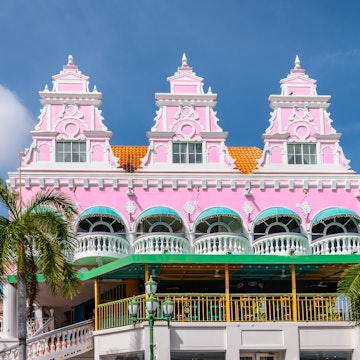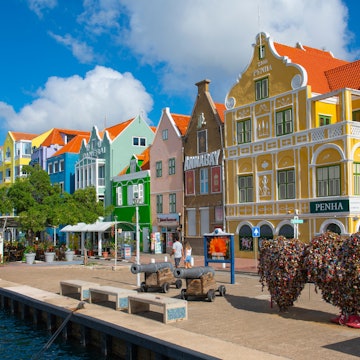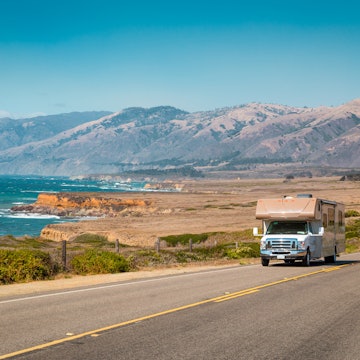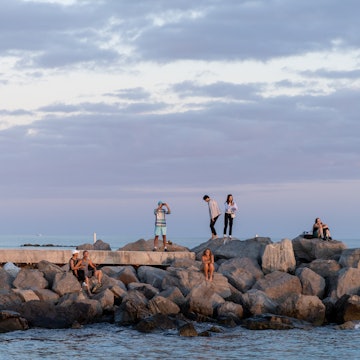
Heading to Miami? A local wants you to know these 10 things

Apr 6, 2024 • 7 min read

Things get going late in Miami. If you’re here to party, count on staying out until the wee hours © Jeff Greenberg / Universal Images Group / Getty Images
Like many South Florida residents, I came first as a tourist before my family made the leap and moved here.
But don’t lump me in with the new wave. I planted my roots in Miami back in 2009 – meaning I’ve been observing Miami’s distinct culture since well before the city’s recent trendiness. Getting to know Miami can be measured in more than years, though: my overuse of words like “bro”, “literally” and “super” – not to mention all sorts of Spanglish – marks me as a local.
If you’ve got Florida on your vacation radar (and who doesn’t?), allow me to share all the things you should know before your visit to marvelous Miami.
Visiting for the weekend? We have the itinerary for you

1. There’s more to Miami than the beach
We don’t blame tourists for coming to Miami for our beautiful beaches – but it would be a shame if you were to only stick to the sand. Outdoorsy travelers will find plenty to keep themselves busy, with a handful of nearby state parks and even two national parks within easy distance to explore. And in town, Miami’s sensational neighborhoods – from Downtown to Wynwood – are worth savoring.
What really makes Miami stand out? Its unique blend of international influences, especially from the Caribbean and Latin America. So don’t miss out on perusing neighborhoods like Little Havana and Little Haiti.
Save our top neighborhood picks in Miami
2. Avoid visiting during spring break
Miami is a great destination year-round – with one exception: spring-break season. In recent years, spring break has become insufferably crowded, overpriced and in some cases even dangerous. Local authorities in Miami Beach have started cracking down by imposing curfews, enacting stricter rules around alcohol sales and increasing parking fees to as much as $100. In short, during spring break, you won’t get to fully experience Miami Beach – which I’d say is a must-see spot for first-time visitors. If spring break is the only time that works for you, then I suggest avoiding hotels in Miami Beach, and especially South Beach.

3. Don’t be surprised by the summer rain
Speaking of seasons, I’d be failing as your guide if I didn’t mention the rainy season. One summer, I met a Miami transplant who had recently moved from Ohio. He expressed his disappointment that it rained almost every day. I told him to count on rain every day from 2pm to 4pm during the summer – and plan accordingly. As we sat in that co-working cafe, it rained during that exact time frame, and I felt like a weather-controlling sorcerer.
Bottom line: South Florida is a tropical destination, so afternoon showers are the summertime norm. Don’t worry, though. Once the (sometimes apocalyptic) rain stops, things turn immediately bright and sunny again.
4. Public transportation is limited…
Greater Miami sprawls across thousands of square miles. And since the city was developed around cars, you can expect points of interest to be spread out, with little to no public transportation to get you there. Miami International Airport, luckily, is directly connected to Downtown via the recently expanded Tri-Rail train service.
Within Downtown Miami and its surrounding areas, you’ll find the Metrorail, as well as the free Metromover, a small train system whose lines circle and extend slightly north and south of the city’s core. Those are fairly reliable, but limited: the moment you want to go a little bit west or east to the beach, things get complicated. You can take the bus; some neighborhoods also offer low-cost trolleys or even free shuttles via the Freebee app. But it’s the connectivity between different areas that’s tricky – and above all, really time-consuming.

5. …but drive at your own risk
So since public transportation isn’t great, you should rent your own car, right? Let me pump the brakes on that idea. Unless you’re moving around a lot in a day or venturing to farther places like the Everglades, you’re probably better off using a rideshare app. Not only because hiring a ride is more cost-effective, but also because Miami drivers are aggressive. Driving well over the speed limit is expected, and using a turn signal is like divulging your war plan to the enemy. (Seriously, I once had someone purposely block me from switching out of a lane that was closing.) If you’re not used to Grand Theft Auto–style driving, then leave it to the locals, who wouldn’t flinch at anything I just described.
If you’re thinking, “Fine! I’ll just walk!”: please don’t do that either. A stroll within one neighborhood is fine, but if you set out on foot from one area to the next, you might find yourself on the side of a highway, or in some not-so-great neighborhoods.
Navigate Miami like a local with these tips for getting around
6. Spanglish is Miami’s unofficial language
Miami is known as the “capital of Latin America” – and with good reason. More than half of the residents identify as Hispanic or Latino, and Spanish is spoken everywhere. In fact, you might come across a situation – say, at a restaurant or with a rideshare driver – where your service provider doesn’t speak English at all. Don’t fret. With the power of a translation app or good-old pointing and charades, you’ll get through. Or someone will step in to translate. We’re used to these scenarios here.
7. Review your restaurant bill carefully
Miami attracts visitors from all around the world, and with different cultures come differing expectations about tipping. To make sure waiters aren’t missing out on essential income, many restaurants in the most touristy areas of Miami (think South Beach and Downtown) will often automatically add 18–20% gratuity to your bill. If you’d like to add an extra tip on top of that, it will certainly be well received, but it’s not expected or necessary. So look over your restaurant bill carefully, keeping in mind that sometimes this automatic gratuity is listed as a “service charge.”
While on the topic of restaurants: don’t ever order something that doesn’t have a price on the menu, especially those big, fancy drinks in South Beach. You might get lured in by “happy hour” – only to find out that the one drink in that two-for-one special costs $50.

8. That tiny coffee is stronger than you think
One of the best parts of visiting Miami is tasting food from around the world, especially Latin America. I encourage you to try new dishes you’ve never heard of. You especially can’t leave without having a Cuban meal – or at least a favorite Cuban snack: pastelitos (pastries usually filled with guava and/or cheese) y cafécito. Cuban coffee is a big deal served in a little cup – but don’t get greedy. That tiny coffee packs a huge caffeinated punch. Drink wisely. As in, two cups max.
These are the best spots to sip Cuban coffee in Miami
9. Mind the dress code if you want to get into the club
Miami’s nightclubs and lounges typically have a strict dress code, especially in Downtown and South Beach. And if the doorman decides your outfit doesn’t make the grade, then you’re not getting in. Believe me: I’ve seen it happen.
For major nightclubs like LIV or M2, that typically means no tank tops, sleeveless shirts, shorts, “excessive baggy clothing,” sandals, flip flops or flats. Neighborhoods like Wynwood and up-and-comer Little River tend to be more casual – but even then, there are exceptions. So check the websites of the specific places you’re interested in. And dress to impress.
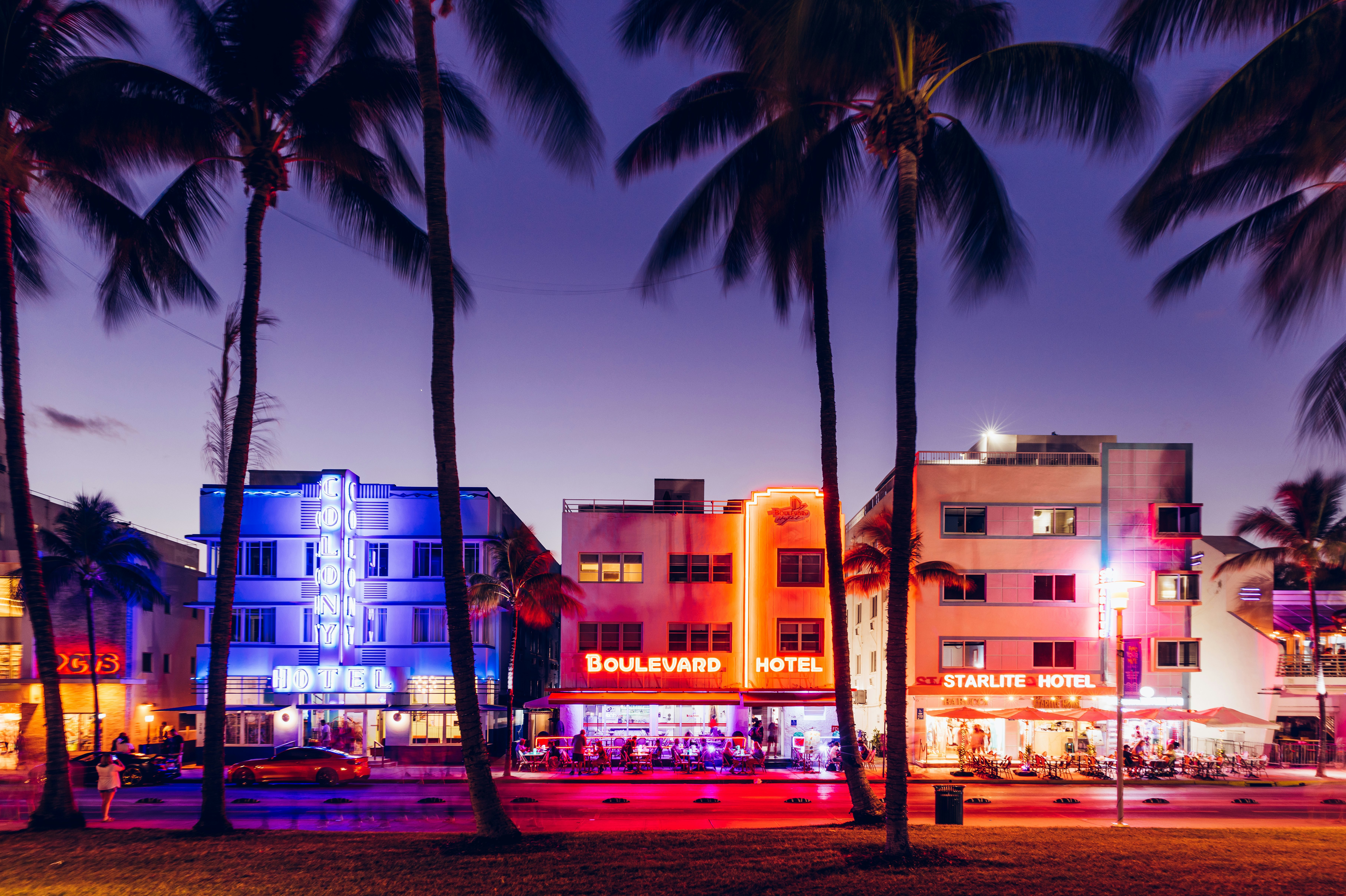
10. The party gets going extra late
Who says New York is the only City That Never Sleeps? Whether it’s the Latin American influence or the fact that people are on the beach until sunset, everything runs late into the evenings in Miami, from dinner (9pm is a perfectly normal mealtime) to the actual nightlife. You can do pre-party drinks anywhere from 10pm to midnight...but count on getting to the club late. The best ones don’t really get going until after midnight. And with some places open 24 hours, don’t be surprised to see people heading home with the sunrise.
Ready to plan more of your trip to Miami?
Add these top experiences to your itinerary
Figure out the best time to visit
Check out our favorite beaches – beyond South Beach
All of these day trips are less than two hours away







